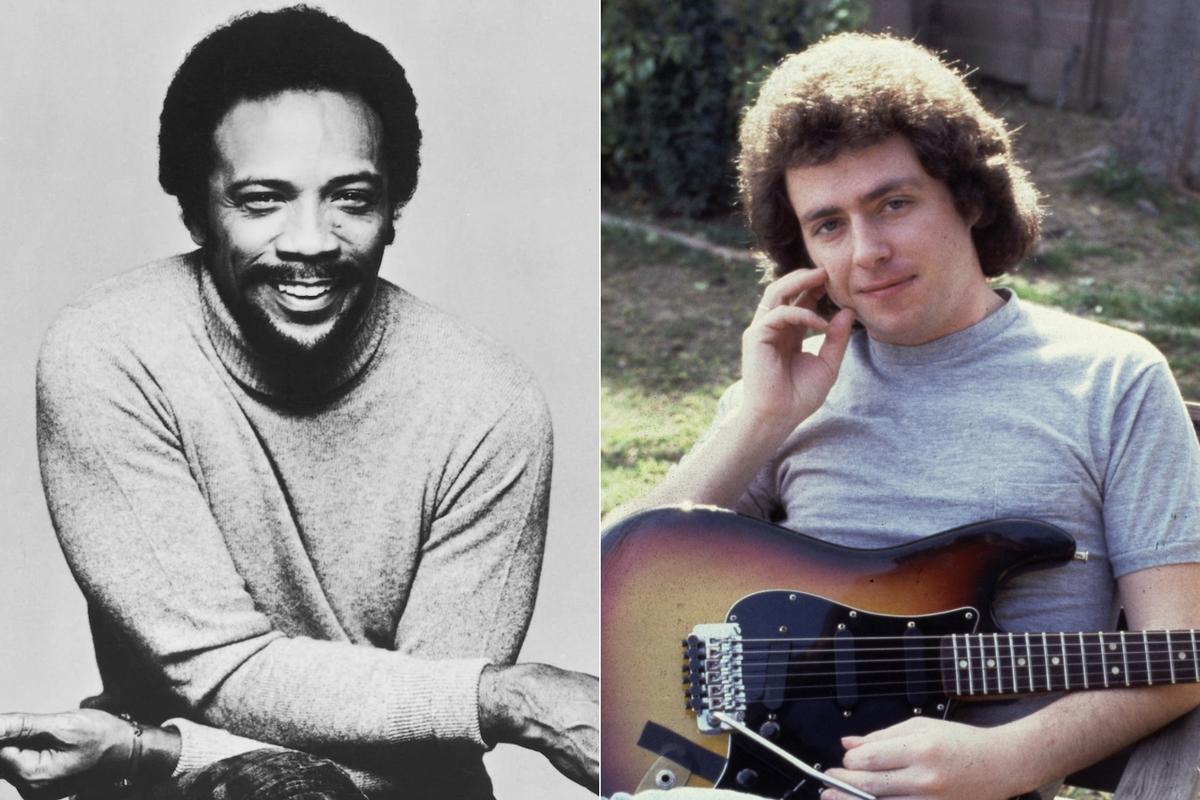Steve Lukather recalled how Quincy Jones stopped him from turning “Beat It” into a heavy metal song – even though the late producer wasn’t even there at the time.
The Toto guitarist and session veteran hailed Jones’ ability to operate like a movie director, guiding his chosen musicians to bring the best out of everyone in pursuit of a great song.
In a recent interview with The Guardian, Lukather recalled that he’d listened to Eddie Van Halen’s contribution to Michael Jackson‘s “Beat It” and decided to support that with a heavy rhythm guitar base.
READ MORE: Eddie Van Halen Broke a Band Rule to Play on ‘Beat It’
“The thing that people never say about Quincy is what a great casting director he was,” the guitarist explained. “He had a Rolodex of musicians of all sorts that he could grab at, and when he would get certain material, he’d go, ’OK, this is the right guy.’”
Lukather first entered Jones’ world at the age of 23. “You never knew who you were gonna get with Quincy,” he said. “I was trying to play it cool because I was a young fan, up in the room with the greats: ‘Oh, Stevie Wonder’s playing keyboards today – that’s kind of cool.’ He didn’t write out parts for us; he gave us free rein. He’d give us a chord sheet and say, ‘What do you guys got? Make me look good!’ Then once he started to get a feel for everything, he was a great director: ‘OK, that’s great; I like that, work that.’”
Lukather and Toto bandmate Jeff Porcaro got the call to work on Jackson’s Thriller, and their first assignment was the track “The Girl Is Mine,” featuring Paul McCartney. “We were like, ‘You’re kidding me – Quincy, Michael and Paul McCartney?’ You’re not going to get bigger than that in 1982,” Lukather marveled. “So we were excited. I mean, granted, the song is a bit silly – let’s all be honest about it. But that was my first encounter with one of the Beatles: a big deal, because they’re the reason why I started playing. Paul and Linda walked in the room, it was like the energy changed; it was very palpable.
“We just had a simple song – some chords written on it, and we started a groove and then everybody finds a part,” Lukather continued. “All the musicians were so good, by the end of the first take, we’re real close. Third take was probably the magical take.”
Why Quincy Jones Needed Steve Lukather to Hold Back on ‘Beat It’
Turning to “Beat It,” Lukather recalled: “We did it backwards: Michael’s lead vocal and the Eddie Van Halen guitar solo were done with a couple of small overdubs but no click track. Jeff made a click track and then a drum part, and I played a bunch of really wild guitar parts, because I knew Eddie’s solo was on it – I was doing real hard rock, a quadruple-track riff.
“Quincy wasn’t even there; he was at Westlake [Recording Studios] doing overdubs on ‘Billie Jean’ while we were fixing ‘Beat It’ — so we’d be on the phone and he goes: ‘It’s too metal, you gotta calm down. I gotta get it on pop radio! Use the small amp, not so much distortion.’”
The results spoke for themselves. “Beat It” became a chart-topping smash and won Grammys for Record of the Year and Best Male Rock Vocal Performance in 1984. Lukather credited Jones for his vision on that song and many others.
“Quincy is the only guy that can do a solo album without playing or writing anything,” Lukather said. “Somehow, no matter what he did, there was a Quincy Jones sound, even if he didn’t play, sing, write or whatever. He was a director.”
Toto Albums Ranked Worst to Best
Countless high school buddies have started their own bands, but few achieved the level of enduring success enjoyed by the guys in Toto.
Gallery Credit: Jeff Giles
